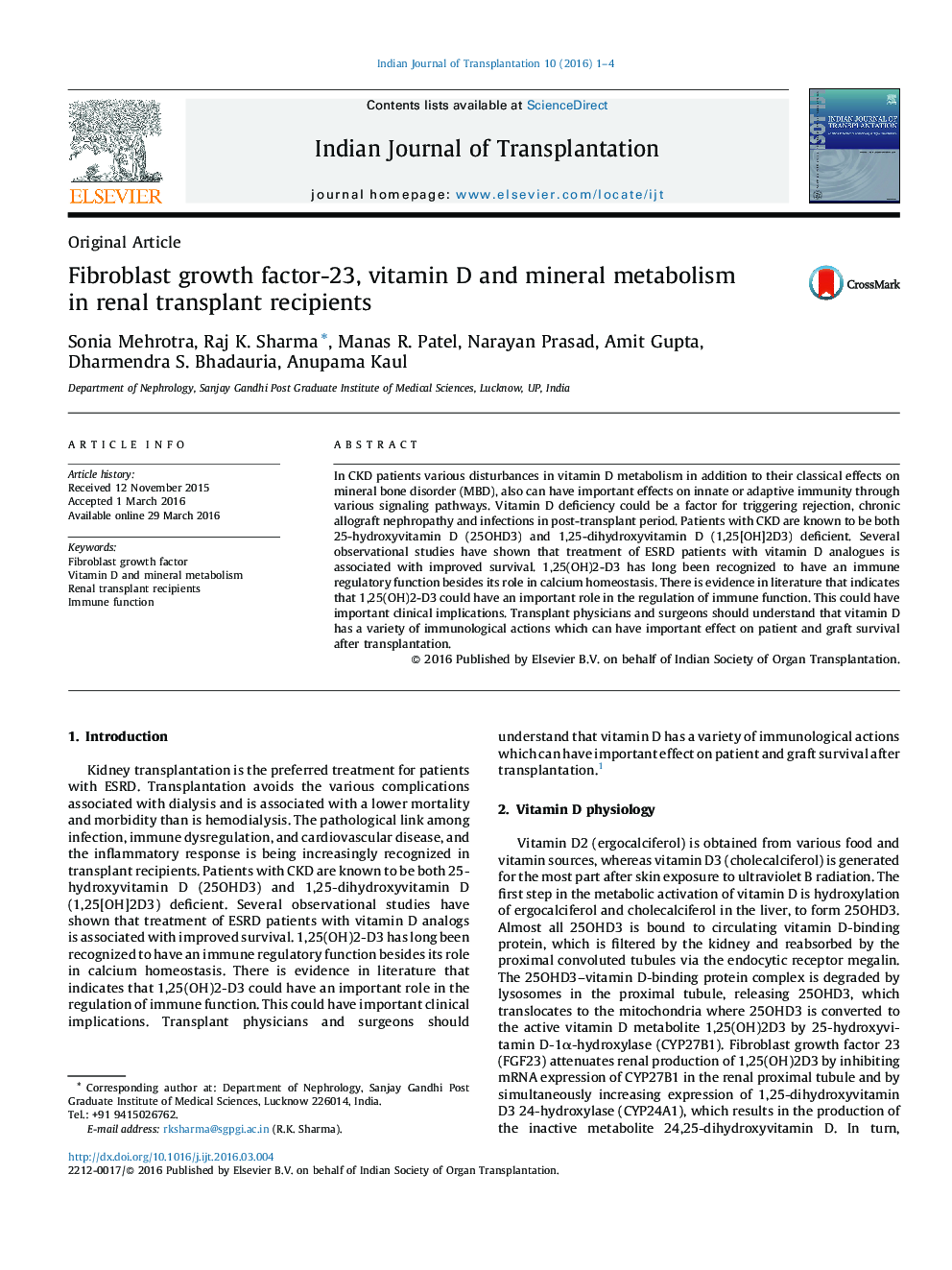| Article ID | Journal | Published Year | Pages | File Type |
|---|---|---|---|---|
| 3337831 | Indian Journal of Transplantation | 2016 | 4 Pages |
Abstract
In CKD patients various disturbances in vitamin D metabolism in addition to their classical effects on mineral bone disorder (MBD), also can have important effects on innate or adaptive immunity through various signaling pathways. Vitamin D deficiency could be a factor for triggering rejection, chronic allograft nephropathy and infections in post-transplant period. Patients with CKD are known to be both 25-hydroxyvitamin D (25OHD3) and 1,25-dihydroxyvitamin D (1,25[OH]2D3) deficient. Several observational studies have shown that treatment of ESRD patients with vitamin D analogues is associated with improved survival. 1,25(OH)2-D3 has long been recognized to have an immune regulatory function besides its role in calcium homeostasis. There is evidence in literature that indicates that 1,25(OH)2-D3 could have an important role in the regulation of immune function. This could have important clinical implications. Transplant physicians and surgeons should understand that vitamin D has a variety of immunological actions which can have important effect on patient and graft survival after transplantation.
Related Topics
Health Sciences
Medicine and Dentistry
Hepatology
Authors
Sonia Mehrotra, Raj K. Sharma, Manas R. Patel, Narayan Prasad, Amit Gupta, Dharmendra S. Bhadauria, Anupama Kaul,
